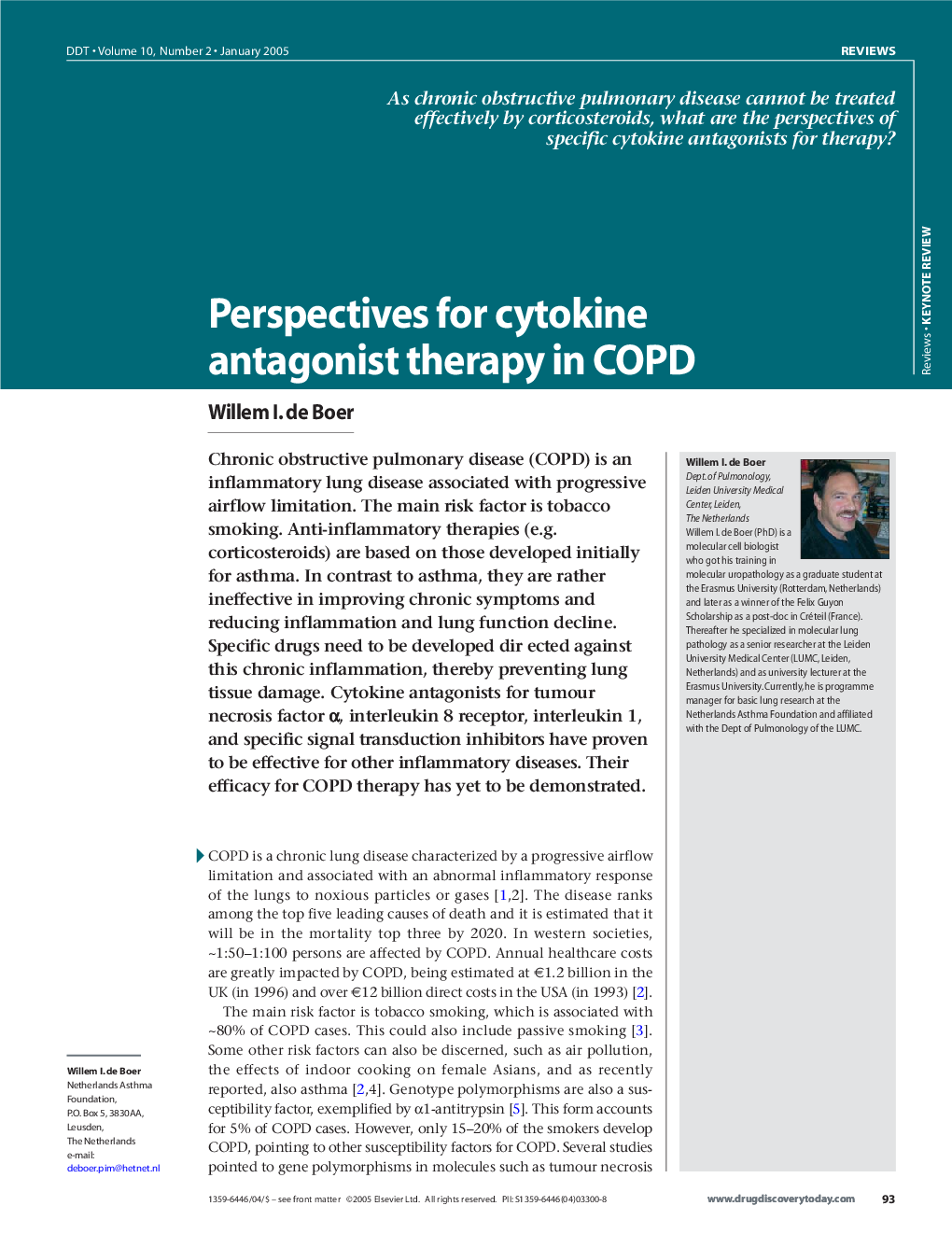| Article ID | Journal | Published Year | Pages | File Type |
|---|---|---|---|---|
| 10886408 | Drug Discovery Today | 2005 | 14 Pages |
Abstract
Chronic obstructive pulmonary disease (COPD) is an inflammatory lung disease associated with progressive airflow limitation. The main risk factor is tobacco smoking. Anti-inflammatory therapies (e.g. corticosteroids) are based on those developed initially for asthma. In contrast to asthma, they are rather ineffective in improving chronic symptoms and reducing inflammation and lung function decline. Specific drugs need to be developed directed against this chronic inflammation, thereby preventing lung tissue damage. Cytokine antagonists for tumour necrosis factor α, interleukin 8 receptor, interleukin 1, and specific signal transduction inhibitors have proven to be effective for other inflammatory diseases. Their efficacy for COPD therapy has yet to be demonstrated.
Keywords
Related Topics
Life Sciences
Biochemistry, Genetics and Molecular Biology
Biotechnology
Authors
Willem I. de Boer,
